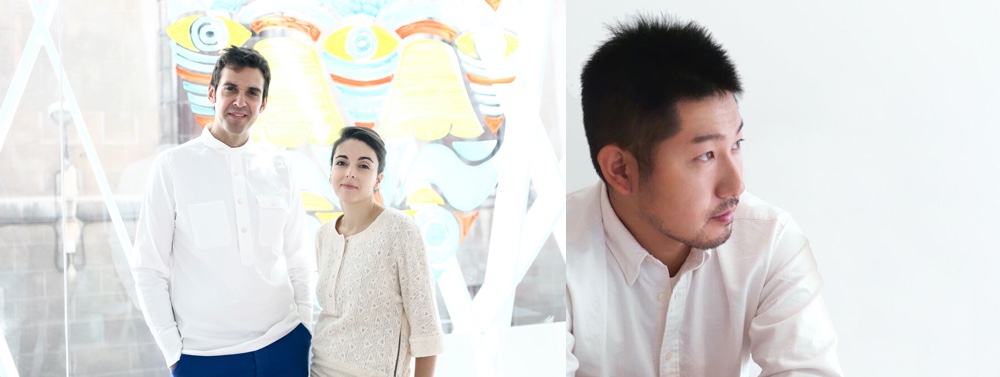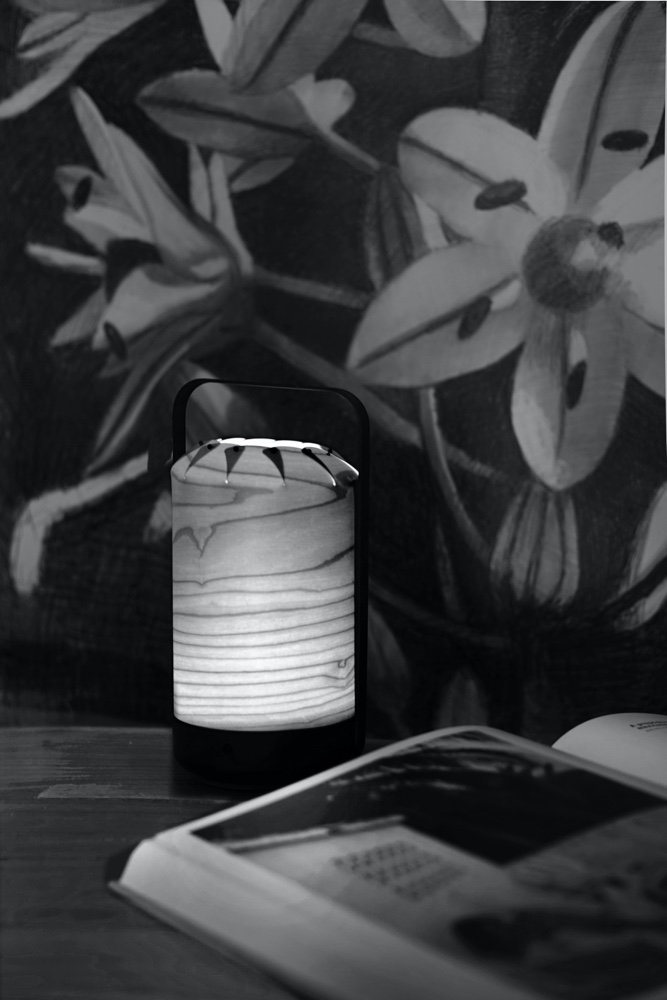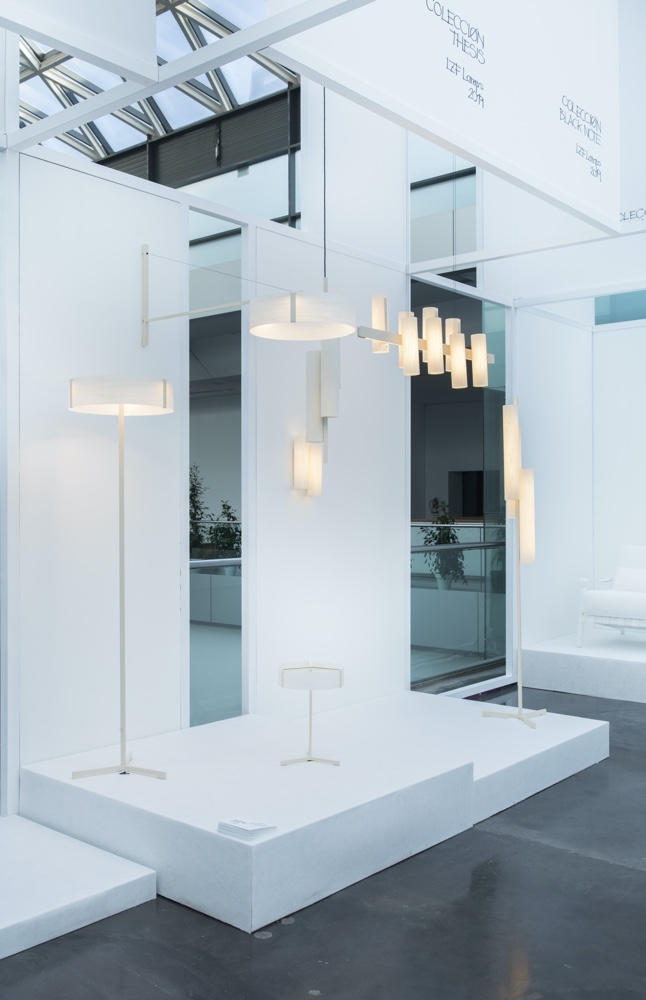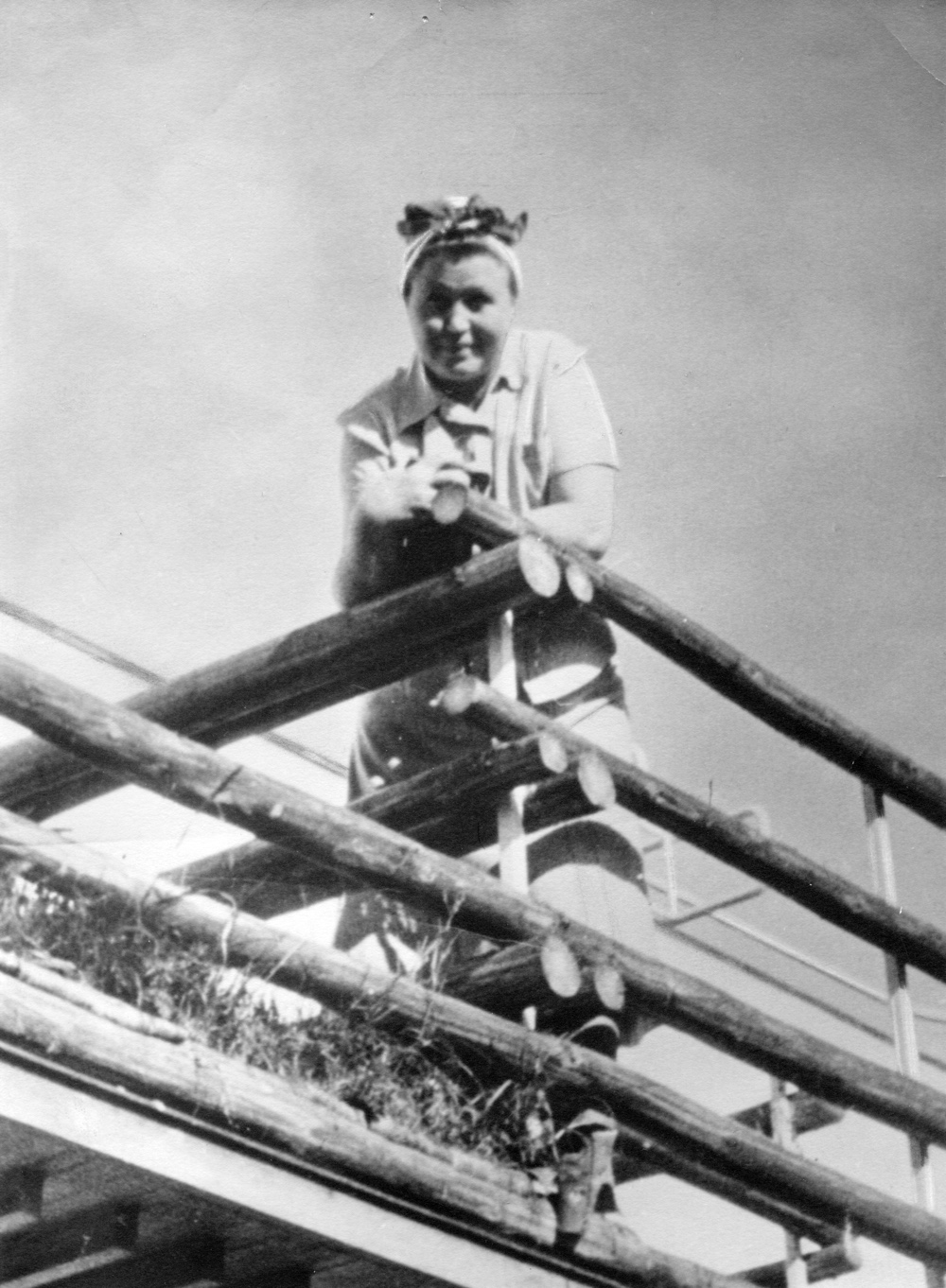Yonoh is an award-winning and multidisciplinary creative design studio. Based in Valencia, it was set up in 2006 by industrial designers Clara del Portillo and Alex Selma. At Yonoh, simplicity, innovation and originality, without extravagance, shape the studio’s design philosophy: in essence, it’s about simple and functional design.
Both Clara and Alex believe in the meticulous study of every small design feature. You’ll find their careful attention to detail in each of their award-winning works for LZF: Banga, Chou and Pleg. And with a new mini version of the Chou, Yonoh and LZF have created a smart and fresh portable lamp.

The current Chou series. This deceptively simple light is especially pleasing when presented in a cluster of differing sizes.
A Q&A with Yonoh
Tell me about your relationship with LZF. What does LZF mean to you?
Yonoh started working with LZF a while back, and we completed our first collaboration together in 2011. LZF was one of the first international companies that we had the pleasure of working with. We’ve been following LZF’s development since its beginning and we’ve seen how the brand has flourished. By affording us the opportunity to work with them, Mariví Calvo and Sandro Tothill at LZF have subsequently helped Yonoh to develop and grow. LZF is more than a client: they are part of Yonoh’s history.
Yonoh designed the award-winning Chou lamp for LZF and it will now be introduced in a new mini version. I’m curious about the design process—how did the Chou come about?
There was a time when we travelled a lot to Japan. Many of the ideas for our projects were inspired by those trips and Chou was one of them. A Japanese name for a simple, traditional lantern is Chouchin and this is the inspiration for Chou. Originating from China, you’ll often see Chouchin at the entrance to a temple or restaurant for example. We thought about extrapolating from paper shadows and forms to create a lamp for LZF. Chou therefore explores the folding and overlapping of wood veneer.
You describe Yonoh as characterised by simple, yet functional design. What sets you apart from other creative studios?
Whenever we approach a design, we will always remove any of the superficial or superfluous elements. We only keep that which is essential and we believe this is core to our design philosophy.
Valencia has announced its campaign for World Design Capital 2022. It may be Spain’s third largest city, but Valencia is very much a centre of creativity. In your view, what lies behind the city’s great design potential?
In Valencia you’ll find a manufacturing tradition that has its roots in furniture design and products for the home and living. From this, many different design schools have emerged. With an abundance of designers across various creative spheres, the way in which people think about design has changed. At Yonoh, we are a multidisciplinary creative studio and we strive to educate people in terms of their thinking on design. It’s about making Valencia a better city through design.
What are your thoughts on Spanish design and its place in the wider design world?
Today it can be difficult to differentiate Spanish design from design found in other parts of the world. Yes, we here at Yonoh are influenced by our culture and our way of living, but we are also very conscious of the different types of design found throughout the world—this very much influences us too.
At Yonoh, we are swayed more by Mediterranean culture generally than by Spanish culture per se. Valencia’s geographic location next to the sea, the warm temperature and beautiful light… these things are more important to us than simply being Spanish.
A selection of LZF lamps by Yonoh
Pleg

The Pleg wall light resembles a folded sheet of paper, putting one in mind of a decorative piece of origami.















